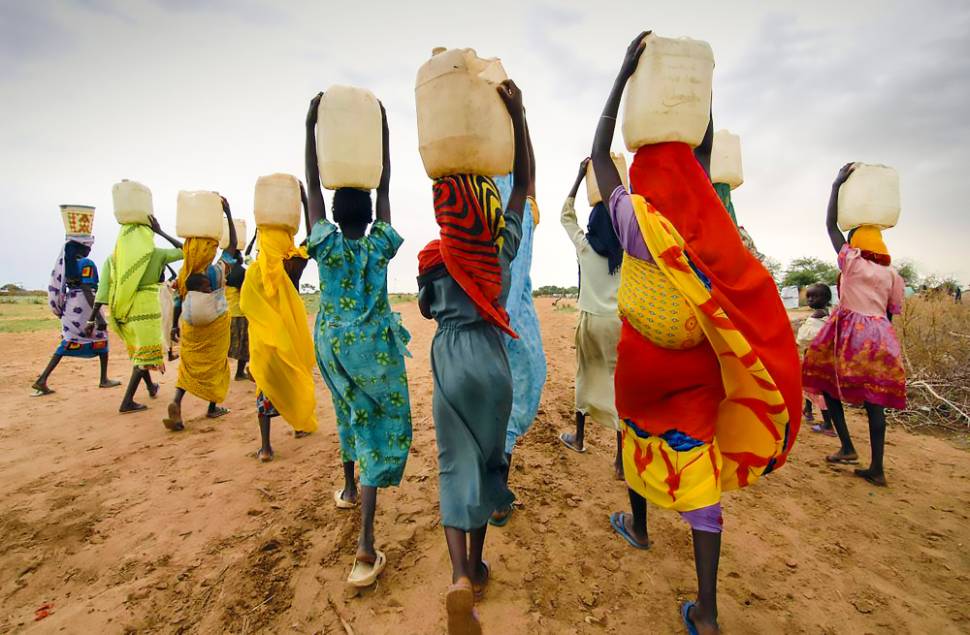Wangari Muta Maathai – The 1st Woman With Nobel In Africa

How hard is it to fight against the country itself, against your own family, to defend your gender, the weak, the forests, and democracy? Wangari Muta Maathai knew from difficulties, pain, and struggles. She is the first woman to be awarded a Nobel in Africa and the first woman to become a university professor in Kenya. She fought to save the forests of the planet, for women’s rights, for democracy, and for the free conduct of elections.
Born in 1940 in the wooded region of Kenya, Wangari Muta Maathai learned from an early age to love nature. She belonged to the largest, in size, tribe, the Kikuyu. At that time, Kenya was under the control of the British. Although women were in a bad position compared to men, in her country, she was fortunate enough to go to a Catholic school, where she was baptized under the name Maria Josephine. Studious as she was, Maathai has always been among the best students. After graduation, favorable political circumstances helped her continue her studies in the West in Biology, in which she obtained a master’s degree. While abroad, Maatai had the opportunity to be informed about environmental pollution and ecology.
Maathai returned home, being a successful scientist, to offer her services. She obtained a position at the University of Nairobi as a professor of zoology. There she finds that her dreams do not fit in a society where injustice prevails. Her colleagues do not accept her, and she loses her position. She is looking for a job, and German professor Hoffman offers her a position in the Veterinary Department of the Medical University School. He supports her in the difficulties she faces in the male-dominated academic community. Professor Hoffman urged her to continue her studies in Germany, and in 1971, Maathai was the first woman in East Africa to hold a Ph.D. Alongside her studies, she marries Muangi Matai and has her first child.
In 1977 Maatai became an associate University professor, a position held for the first time by a woman there. Maathai was never unmoved nor uninvolved in what was happening to her people and her own country. Forests were deforested, Kenyans were starving, nature was being destroyed, wildlife was disappearing, and democracy was non-existent. She decides to fight. Seeking a solution to the multiple problems that trouble society, she launched, in the same year, a campaign in favor of tree planting. She founded the Green Belt Movement. It is a women’s, non-governmental organization that helps the environment and women. The movement carried out Africa’s most extensive tree-planting program, leveraging global environmental resources.
Through the intelligent, simple, and feasible solution she implemented, Maatai sought to promote Kenya’s reforestation, biodiversity, and job creation for women and change their place in society’s consciousness. Her efforts resulted in the protection of the environment and the fight against poverty. At the same time, by encouraging women to plant trees for pay, she secured labor, food, fuel, and shelter and enabled them to take back their land. After this action, Maatai acquired the name Mama Miti, that is, mother of trees.
In her personal life, Maatai has not been particularly lucky. She becomes involved in a legal dispute with her ex-husband when she asks him for a divorce. The ruling comes out in his favor, but Maatai denounces the judge for corruption resulting in her being sentenced to six months imprisonment. Women from Nairobi testify in her favor in court, and therefore, she avoids imprisonment. Her ex-husband continues her judicial prosecution by demanding that she changes her last name, and then she adds a second “A” to her last name, creating a new name for herself. Due to the poor financial situation, however, she is forced to separate from her three children and give them to their father to raise them.
Maathai was warm, modest, and full of gifts and values. Many international organizations recognized her contribution, and she earned the respect and appreciation of not only the people of her country but also the world community. When she reached 64 years of age in 2004, she was awarded the Nobel Peace Prize “for her contribution to promoting sustainable development, democracy, and peace.” She wrote an autographed book in which she recounts her life as a separated mother of three children, an active environmentalist, feminist and political activist. Maathai passed away in 2011, leaving behind more than 30 million trees and rich work as a legacy to the next generations in order to qualify for a better life.
Have you read?
Using the Safety Index: Smart Residency Decisions for Investors & Expats,
Why the Art of Cooking is Like Great Leadership by Jason Richmond.
AI Will Revolutionize Every Business and Every Organization by Edward D. Hess.
FOUR PRACTICES TO CULTIVATE LEARNING AGILITY by Chuck Wachendorfer.
Self-Storage: The Niche Market Providing Consistent Returns for Investors.
Bring the best of the CEOWORLD magazine's global journalism to audiences in the United States and around the world. - Add CEOWORLD magazine to your Google News feed.
Follow CEOWORLD magazine headlines on: Google News, LinkedIn, Twitter, and Facebook.
Copyright 2025 The CEOWORLD magazine. All rights reserved. This material (and any extract from it) must not be copied, redistributed or placed on any website, without CEOWORLD magazine' prior written consent. For media queries, please contact: info@ceoworld.biz








